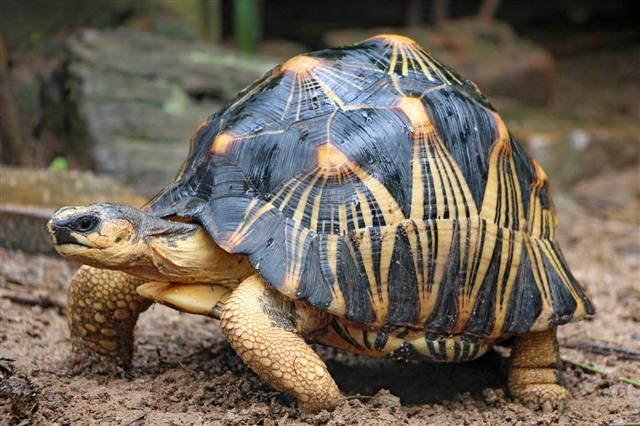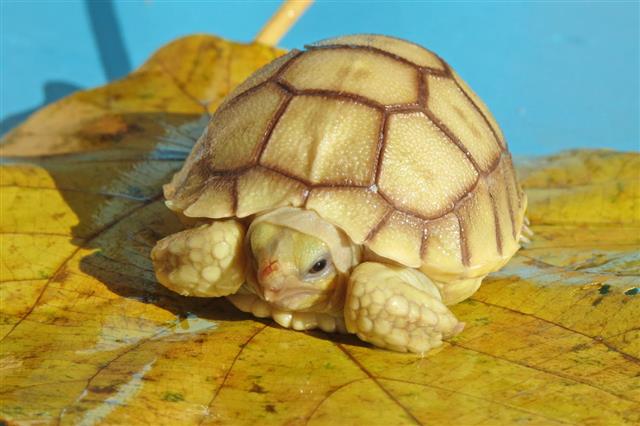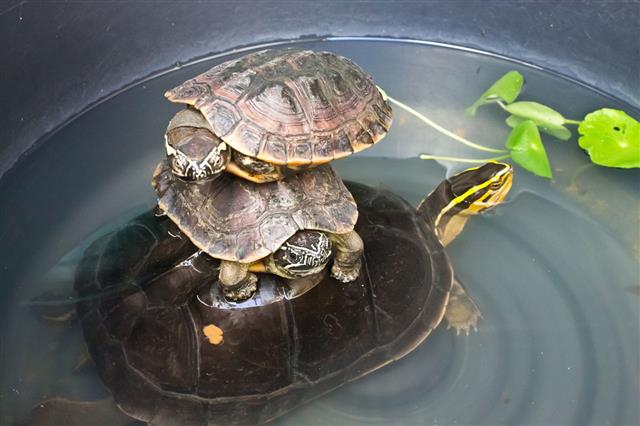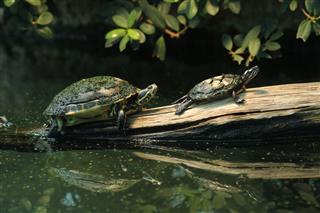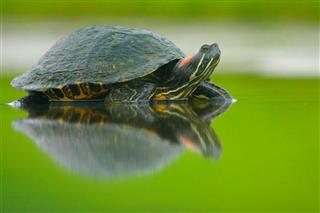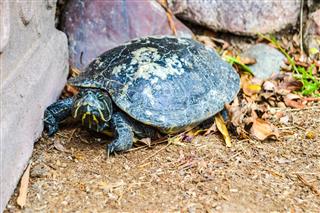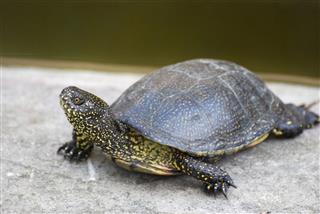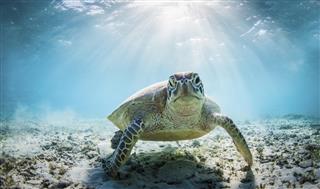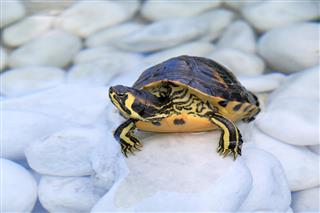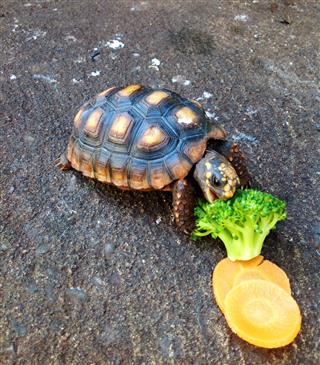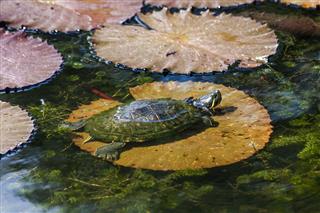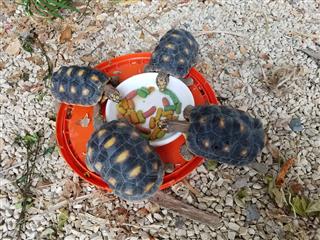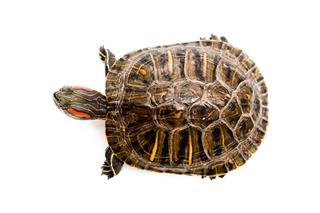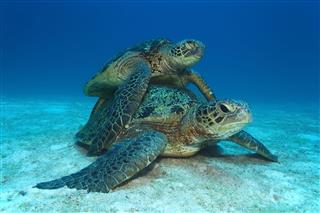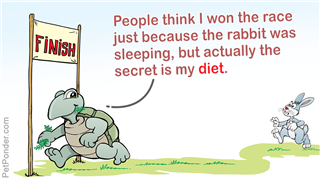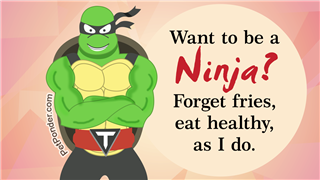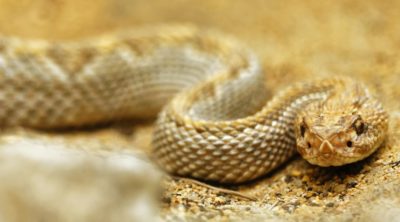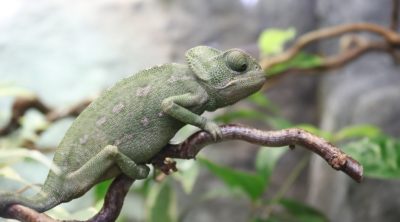
Turtles are often kept as pets. They can be carnivores, herbivores, and omnivores. Here are a few tips on what turtles eat.
Turtles are reptiles, and similar to all reptiles they are ‘cold blooded’ or ectothermic. Plus, turtles being amniotes, they do not lay their eggs underwater and breathe air.
Basically, there are three types of turtles:
- Herbivores, which eat primarily vegetation and plants;
- Carnivores, which eat mostly meat.
- Omnivores, which eat plants and flesh
First of all, you need to know which species of turtle you are feeding. The natural habitat of the each species of turtle determines its diet as well as other facets of its care. Here are some examples of turtles with their most preferred foods:
Diet for Turtles (Some Examples)
- The Chinese 3-Striped Box Turtle’s diet comprises mostly meat.
- The Malayan Box Turtle’s feed should include lots of plants with only a small amount of meat.
- The Map Turtles prefer eating meat.
- The River Cooter’s diet comprises primarily of plants.
- The American Box Turtle is an omnivore which eats just about everything.
- The Red-Eared Slider, begins by eating worms and bugs, but turns into an omnivore as it matures.
One of the best ways to make sure that your turtle stays healthy and happy is to feed it its natural diet as much as possible. Turtles in their natural habitat eat a variety of foods according to the season; hence, variety is the key to feeding your turtle.
Feed Your Turtle Adequate Amounts of Calcium
Turtle food should consist of items that are rich in vitamins and minerals. Minerals like vitamin D3, phosphorus, and calcium are extremely important for the health of your turtle. While turtles get enough phosphorus, since most of the food they eat contains enough phosphorus. It is their intake of calcium that you need to pay attention to.
Calcium Enriched Foods and Importance of Vitamin D3
Crushed oyster shell, eggshells that are boiled and crushed, plaster block, and cuttlebone are all good sources of calcium. However, dietary calcium cannot be utilized properly if vitamin D3 is absent. Vitamin D3 is produced in the turtle’s body if it is exposed to direct sunlight or any good reptile light such as Reptile D-Light or Reptisun. Or, they can be given vitamin D3 in their diet via a supplement.
Precaution Against Blockage of Calcium and Iodine Deficiency
Certain foods can block calcium being absorbed because they contain high amounts of oxalic acid, hence care must be taken not to allow your turtle to eat too much of them, although being natural vermifuges, they could be somewhat beneficial. Certain foods, like cabbage, which have goitrogens can cause a deficiency in iodine, if too much of it is given to your turtle. But, feeding your turtle with cuttlebone can overcome this problem since it has trace amounts of iodine.
Go Easy on the Protein
Too much protein in the diet causes stress on the kidneys and is thought to cause deformities, like pyramiding, in the turtle’s shell. Therefore, it is advisable not to feed your turtle high protein foods like dog food or cat food or meats that humans eat.
When protein is fed sparingly along with a varied diet, it does not cause any harm, but it should not be a staple. In fact, it is recommended to feed your turtle as wide a variety of foods as possible, without overusing any single type of food. Keep in mind that plants too provide protein; hence, getting enough protein in the diet is not difficult.
Can Turtles Eat Raw Hamburger?
Turtle-owners, especially children would love to share their favorite meals with their pets. Although turtles are omnivorous, it does not mean they can eat all human, dog or cat food. Never ever feed your turtle hamburger, hot dogs and other junk food that you may love to munch on. After all, your turtle’s health comes first.
Foods That Omnivorous Turtles Eat
Some of the foods for turtles is listed below. Make sure you give your turtle these foods according to the species you own as pet.
Proteins:
As turtles do eat other small animals in their natural habitat, feed your pet cooked fish, boiled eggs, cooked turkey or chicken, mealworms, waxworms, slugs, shrimp, snails, crickets, earthworms, and silkworms. Lean beef, dog food or cat food can be given occasionally. Avoid using raw meats due to the danger of contamination and fatty meats like hamburger should be avoided.
Leafy Vegetables:
When it comes to leafy vegetables, give you turtle tufted vetch, sow thistle, grape leaves, fig leaves, endive, red clover, plantain weed, chickweed, dandelion, lettuce- both green and red; turnip greens, collards, and aquatic plants like water lettuce, duckweed, and so on. Turtles can also eat carrot tops, so do give them a few as a treat.
Vegetables:
Apart from leafy greens, feed your pet corn, wax beans, green beans, beets, sweet potatoes, carrots, okra, green peas, and squashes.
Flowers:
Turtles are very fond of flowers. You can include rose, dandelion, chives, pansies, petunia, lilies, carnations, hibiscus, hyssop, borage, nasturtium, and geraniums in their diet.
Fruits:
Fruits too should be a part of turtle diet. Fruits like pumpkin, kiwi, mango, apple, strawberry, banana, tomato, blackberries, cantaloupe, blueberries, grapes, figs, and citrus fruits should be fed to the pet turtle.
There is also commercially made food available for turtles as well as supplements.
Foods that Turtles Should Not Eat
Milk and Dairy Products
Milk products cannot be digested by reptiles because they do not have the enzymes required for breaking down lactose, hence dairy products like yogurt and cheese should not be fed to turtles.
Processed Foods and Canned Foods
Processed foods and canned foods are usually high in preservatives and salt, the effects of which are not known fully. It is advisable not to feed your turtles these foods, or use limited amounts, if you must.
Poisonous Plants
Even though turtles may eat certain poisonous plants in their natural habitat, the specifics of this feeding habit are not well-known, hence, to be on the safe side, it is advisable not to have poisonous plants where you keep them, such as avocado plants, rhubarb plants, and poison ivy.
Be careful to find out the type of turtle yours is before feeding it anything. Feeding it the wrong kinds of food can make it sick. Do follow the advise given in the above paragraphs, when feeding your pet turtle.
